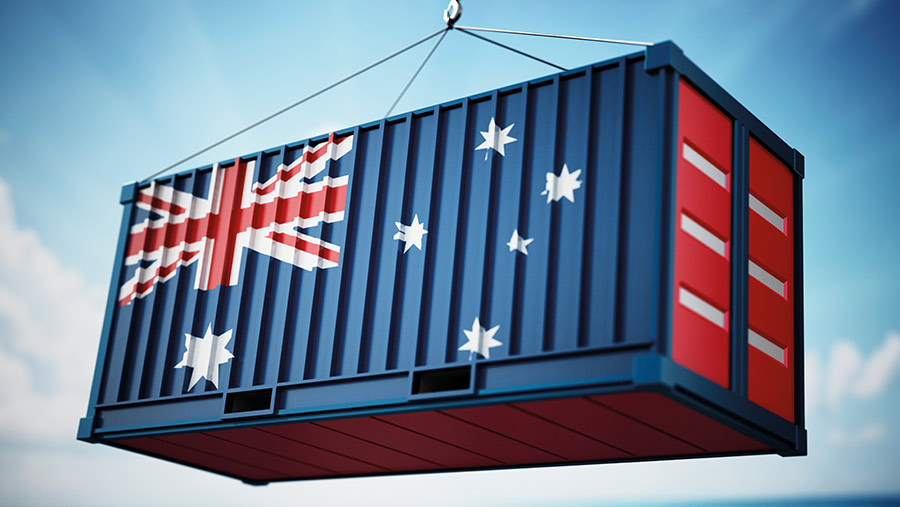Australia-UK free trade deal approval reignites farmer concerns
 © Destina/Adobe Stock
© Destina/Adobe Stock The NFU has called for parliamentary scrutiny of future trade deals after the UK-Australia deal passed a major political milestone.
The free-trade agreement (FTA), brokered in 2021 by former prime minister Liz Truss, passed through Australia’s parliament on 23 November.
It followed a major debate in the Australian parliament and a lengthy scrutiny of the detail by political parties. Prime minister Rishi Sunak, an ardent Brexiteer, shook hands with his Australian opposite number, Anthony Albanese, in an organised photocall as the news was announced.
See also: George Eustice faces farmer backlash over trade deal comments
However, this latest step has reignited anger and concern over the deal in farming circles. It is seen as a threat that will allow a flood of cheap, lower-welfare imports into the UK.
Also high among the concerns is the lack of political scrutiny in Westminster. Unlike the Australian approach, the trade deal was not afforded a parliamentary debate in the UK despite commitments to do so by Conservative Party leaders.
Both Liz Truss and Boris Johnson pledged to give parliamentary time for a debate. But the deal passed through Westminster without wide political scrutiny.
NFU frustration
As news of the Australian ratification spread, NFU president Minette Batters tweeted her frustration.
It has yet to anywhere near the UK parliament. Never again must our democracy be bypassed, every FTA must be scrutinised by Parliament. https://t.co/bFcCcCWcZM
— minette batters (@Minette_Batters) November 22, 2022
Mrs Batters later told Farmers Weekly: “The NFU was very clear in our belief at the time that it would be wholly irresponsible for government to sign a trade deal which eliminates all tariffs and quotas on sensitive products.
“We made clear that a tariff-free trade deal with Australia has the potential to jeopardise our own farming industry and could cause the demise of many, many beef and sheep farms throughout the UK. This is true whether tariffs are dropped immediately or in 15 years’ time.
She added: “Of course, we would welcome any renegotiation of the terms to make the deal more beneficial to the UK. If renegotiation is ruled out, then government must, at the very least, ensure that there are much more robust procedures in place to allow better, rigorous parliamentary scrutiny of any future trade deals.
“We cannot have the same situation happening again over the heads of our elected MPs.”
Eustice comments
The latest controversy over the Australia trade agreement comes just 10 days after former Defra secretary George Eustice broke ranks to criticise the deal.
“Overall, the truth of the matter is that the UK gave away far too much for far too little in return,” Mr Eustice told parliament.
“We did not actually need to give Australia nor New Zealand full liberalisation of beef and sheep. It was not in our economic interest to do so. And neither Australia nor New Zealand had anything to offer in return for such a grand concession.”
And during her campaign to become prime minister, Ms Truss pledged that the UK-Australia trade deal would be scrutinised by MPs in parliament – but this never happened.
Government defence
However, the UK government has defended the deal.
A spokesperson for the Department for International Trade pointed to the £10.4bn of additional bilateral trade the deal would stimulate, “supporting economic growth in every part of the UK”.
“We have always said that we will not compromise the UK’s high environmental, animal welfare or food safety standards and the deal includes a range of safeguards to support British farmers,” the spokesperson added.
“The independent Trade and Agriculture Commission also recently concluded that the deal upholds the UK’s robust domestic protections.”
